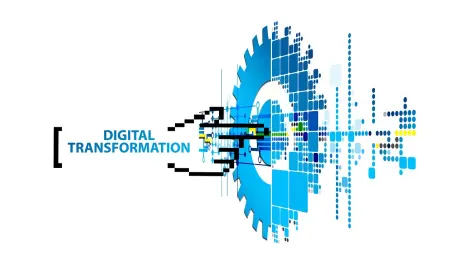As the business landscape rapidly evolves, it becomes imperative for business management education to keep pace, seamlessly integrating digital tools to enhance student engagement and learning outcomes. Dr. Rajiv R. Thakur from Jaipuria School of Business in Ghaziabad offers valuable insights into leveraging these digital advancements. He emphasizes that business education must transcend traditional theoretical frameworks to adequately equip graduates with the necessary skills required to tackle real-world challenges. The academic realm is increasingly recognizing the vitality of incorporating cutting-edge technologies like virtual classrooms, gamification, Augmented Reality (AR), Virtual Reality (VR), and Artificial Intelligence (AI) to create immersive and personalized learning experiences.
Embracing Digital Tools for Enhanced Learning
Incorporating digital tools such as virtual classrooms is revolutionizing how educators deliver content, making it possible for students to access lectures from anywhere in the world. This geographical flexibility not only democratizes education but also allows students to learn at their own pace, leading to a more personalized educational experience. According to Dr. Thakur, virtual classrooms equipped with interactive features and real-time feedback mechanisms can ensure that students remain engaged and can benefit from a collaborative learning environment. These tools also provide an avenue for educators to employ different teaching styles, catering to diverse learning preferences.
Furthermore, the potential of AR and VR in business management education cannot be overstated. These technologies offer unparalleled opportunities for experiential learning, where students can interact with virtual business environments and scenarios. This immersive approach allows students to apply theoretical knowledge in simulated business environments, fostering a deeper understanding of complex concepts. By incorporating AR/VR, educational institutions can successfully bridge the gap between classroom learning and real-world application, making students more industry-ready upon graduation.
Identifying and Bridging Skills Gaps
As technology continually evolves, the skills required in the business world are also shifting, necessitating graduates to be proficient in both hard and soft skills. Dr. Thakur stresses the importance of developing technological proficiency, interpersonal skills, data analytics capabilities, resilience, adaptability, leadership, and global citizenship among students. A robust curriculum that addresses these skills gaps can significantly enhance students’ employability in a digitally-driven workplace, where traditional low-skill jobs are increasingly being automated.
To align educational outcomes with industry needs, Dr. Thakur advocates for the integration of real-world examples and case studies focused on contemporary topics such as AI, big data, fintech, and e-commerce. Industry collaborations are another crucial element in this equation. Partnerships with global universities, industry visits, guest lectures, and keynote addresses by industry leaders provide students with invaluable exposure to current industry practices and emerging trends. This multifaceted approach ensures that students can connect theoretical knowledge with practical applications, making them more adept at navigating and leading in a technology-enhanced business environment.
The Role of Simulations and Gamification
Simulations and gamification are transforming business management education by making learning more experiential and engaging. According to Dr. Thakur, these methods allow students to apply their knowledge in risk-free environments, where they can see the consequences of their decisions without real-world repercussions. By simulating actual business scenarios, students can better understand complex concepts and develop critical thinking and problem-solving skills. This practical experience is invaluable in preparing graduates for the unpredictable challenges of the business world.
Gamified learning, which incorporates elements of competition and rewards, resonates particularly well with tech-savvy students. It enhances their engagement and helps them grasp intricate concepts through a playful yet effective manner. When students are rewarded for their achievements, it fosters a sense of accomplishment and motivation, driving them to delve deeper into the subject matter. This interactive and competitive element can make learning more enjoyable and effective, ultimately leading to better learning outcomes.
Preparing for the Future of Business
As technology advances, the business world demands new skills, requiring graduates to master both hard and soft skills. Dr. Thakur highlights the need for students to develop technological proficiency, interpersonal skills, data analytics abilities, resilience, adaptability, leadership, and a sense of global citizenship. A well-rounded curriculum that addresses these gaps can significantly boost students’ employability in a digital workplace where automation is taking over traditional low-skill jobs.
To bridge the gap between education and industry needs, Dr. Thakur emphasizes incorporating real-world examples and case studies on relevant topics like AI, big data, fintech, and e-commerce. Industry partnerships are also essential. Collaborations with global universities, industry visits, guest lectures, and keynote speeches by industry leaders offer students valuable insights into current industry practices and emerging trends. This comprehensive approach ensures students can connect theoretical knowledge with real-world applications, making them better equipped to navigate and lead in a technology-driven business environment.









